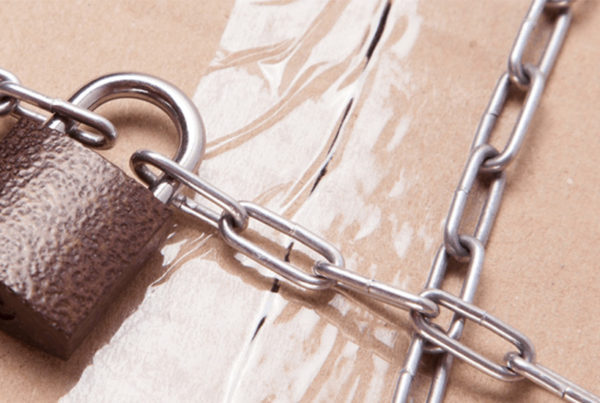Fleet managers have to keep an eye on everything they transport. Maintain your cargo integrity to improve your reputation and customer satisfaction levels.
One of the most unsung parts of a fleet manager’s job centres around cargo and ensuring its integrity, but what exactly does that mean? Cargo integrity goes beyond simply making sure everything is delivered safely, on time and undamaged. As important as those things are, cargo integrity is all about ensuring the supply chain remains untainted and that all business is conducted in a transparent and honest manner.
Hoping your security measures are sufficient to deter the many threats to trailer cargo isn’t enough – you must actively work to make sure systems, technology and training are in place to ensure full integrity. Cargo theft is a huge problem worldwide, despite the efforts of local and international bodies to prevent it. Research from the TT Club showed the median theft value in Europe to be $59,866 in 2018, just higher than $58,500 in North America but well below $77,000 in South America.[1]

Damaged goods and an interrupted cool chain also threatens cargo integrity – not just theft. Your customers won’t be happy with missing goods and you might lose them as a client – resulting in your reputation taking a hit. If this is caused by negligence or driver theft, there could be legal ramifications too. Certain countries have regulations that might mean the breakdown of a supply chain could lead to a product recall, which you don’t want your company to be held liable for.This can be a complicated area, but one that you can take steps to get on top of with WABCO solutions.
Avoid financial and reputational hazards by ensuring full cargo integrity with these helpful tips.
Prevent driver fraud
It may not be the most common cause of cargo theft, but there are enough incidents to show that driver fraud is a pressing issue for modern fleet managers. This can take on numerous forms, from drivers logging that haven’t been made, to being complicit in thefts. The latter can involve staged hijacks, where trucks, trailers and their cargo are lost. It can also involve them leaving trailers and trucks unlocked and accessible at pre-arranged times.
If these events happen, you can expect your company’s reputation to take a blow, along with the finances and the accompanying legal headache.
You can mitigate against such instances of fraud in several ways. Firstly, ensure you have proper screening processes in place when hiring drivers. Perform thorough checks and secure references from former employers, as well as giving drivers a thorough interview process before they are brought on board. Put in place systems and technology that make your cargo more theft-proof. Immobilising devices, PIN-code locks and monitoring systems that work through telematics and provide a real-time overview of your vehicles, drivers and cargo are a minimum requirement. Moreover, telematics devices including TX-SKY can also make sure you are aware of exactly what your drivers are doing during their periods of duty, thereby encouraging more operational transparency.
Use similar devices to keep in touch with your drivers and customers, so that any issues on route can be ironed out, and you’ll be made aware of any problems as they arise.
Protect against counterfeits
The same security measures can also tackle another huge problem in logistics – the delivery of counterfeit goods. Trade in counterfeit goods now makes up 3.3% of world trade and is continuing to rise, and if these enter the supply chain at some point, it can cause huge problems for fleets.[2]
Fleet managers can help protect against this by taking a thorough approach to authentication and security. Top Driver Training and telematics solutions can ensure that you’re taking delivery of ‘real’ cargo, and trailer technology, such as OptiLock™ security devices and status monitoring apps, can help you check if a trailer and what’s inside it are subject to tampering when they’re out on the road or parked up.

Don’t overlook any opportunity to put cargo integrity at the heart of what you do – use route-planning and direct-to-cab driver communication to guide drivers to secure parking locations if they need to park up on the way to a delivery. That way, you can mitigate against the embarrassment and financial cost of delivering the wrong goods and corrupting the supply chain. You don’t want the costs of making the delivery again, and you don’t want your customers to see you as unreliable and insecure.
Hoping your security measures are sufficient to deter the many threats to trailer cargo isn’t enough – you must actively work to ensure full integrity.
Avoid transporting unregistered goods
Legal compliance and meeting often complex regulations can be an issue for fleet managers. Fundamentally, you have to be sure that you are transporting legal goods. It might be tempting to accept any and all business you’re offered – especially in quiet periods – but it’s always best practice to screen customers and suppliers first to make sure everything is above board.
It’s even more important to do so when the cargo may have to go across international borders, with customs and excise rules governing the transport of goods in different nations. The rules aren’t always the same, so you need to know that what you’re carrying has all the relevant paperwork so that you won’t fall foul of international law. Again, use the TX-FLEX fleet management system incorporating both fixed and mobile telematics to make sure everything is signed and accounted for at every stage of the supply chain.
Monitor cargo status
Cargo integrity is also about ensuring products reach their destination in the expected condition. Should customers receive goods in a poor state it can damage your fleet’s reputation and lose their future business.
Especially for refrigerated transport, it is vital you know not only where your vehicles are but what the temperature is inside trailer and whether the doors have been opened. When monitoring the situation, it should be easier to spot an issue and take action quickly to remedy it. This could include informing the driver and customer or sending out replacements, for example.
The more you do to maintain cargo integrity, the more you’re doing to secure your company’s reputation and prosperity.



